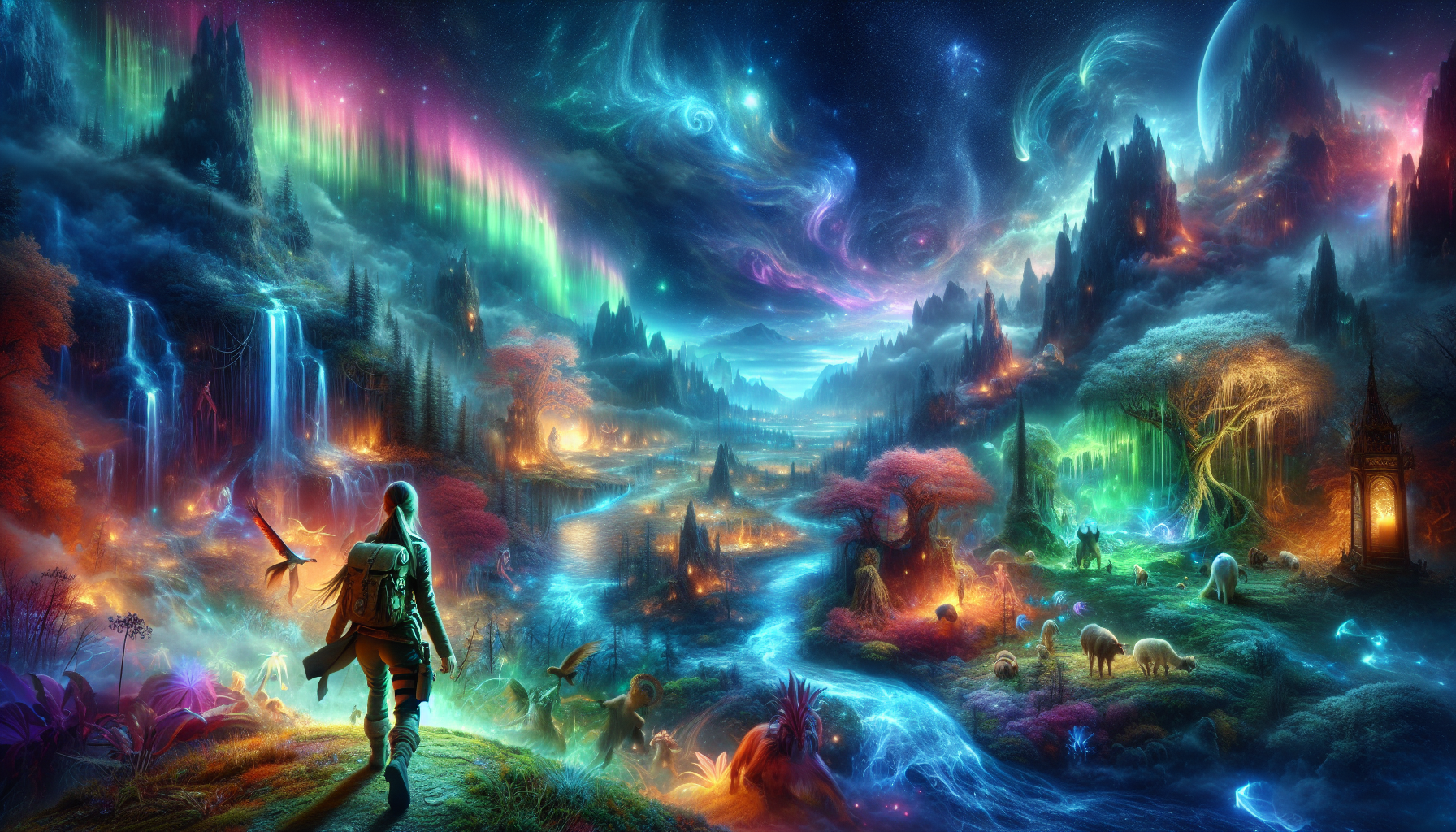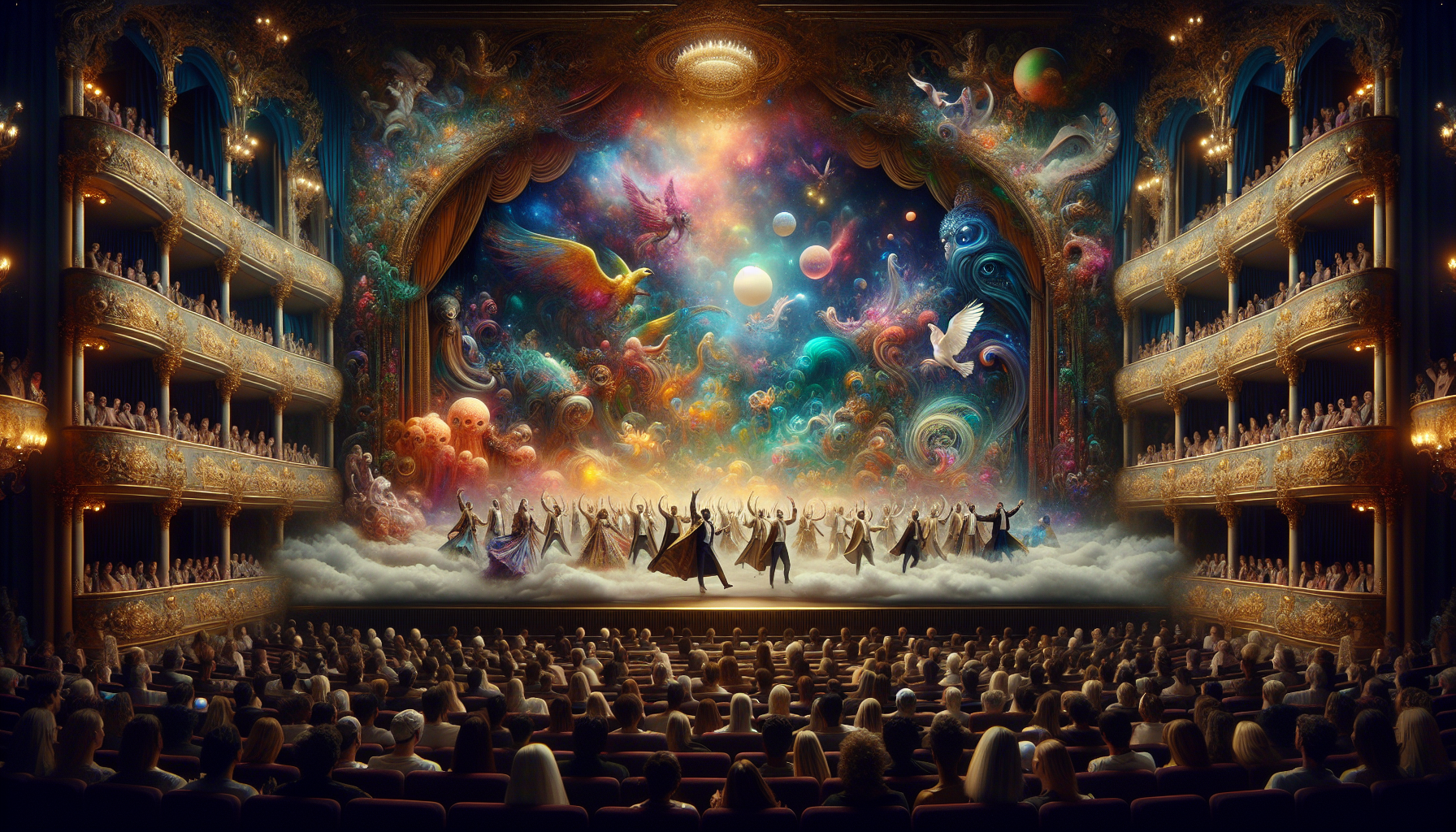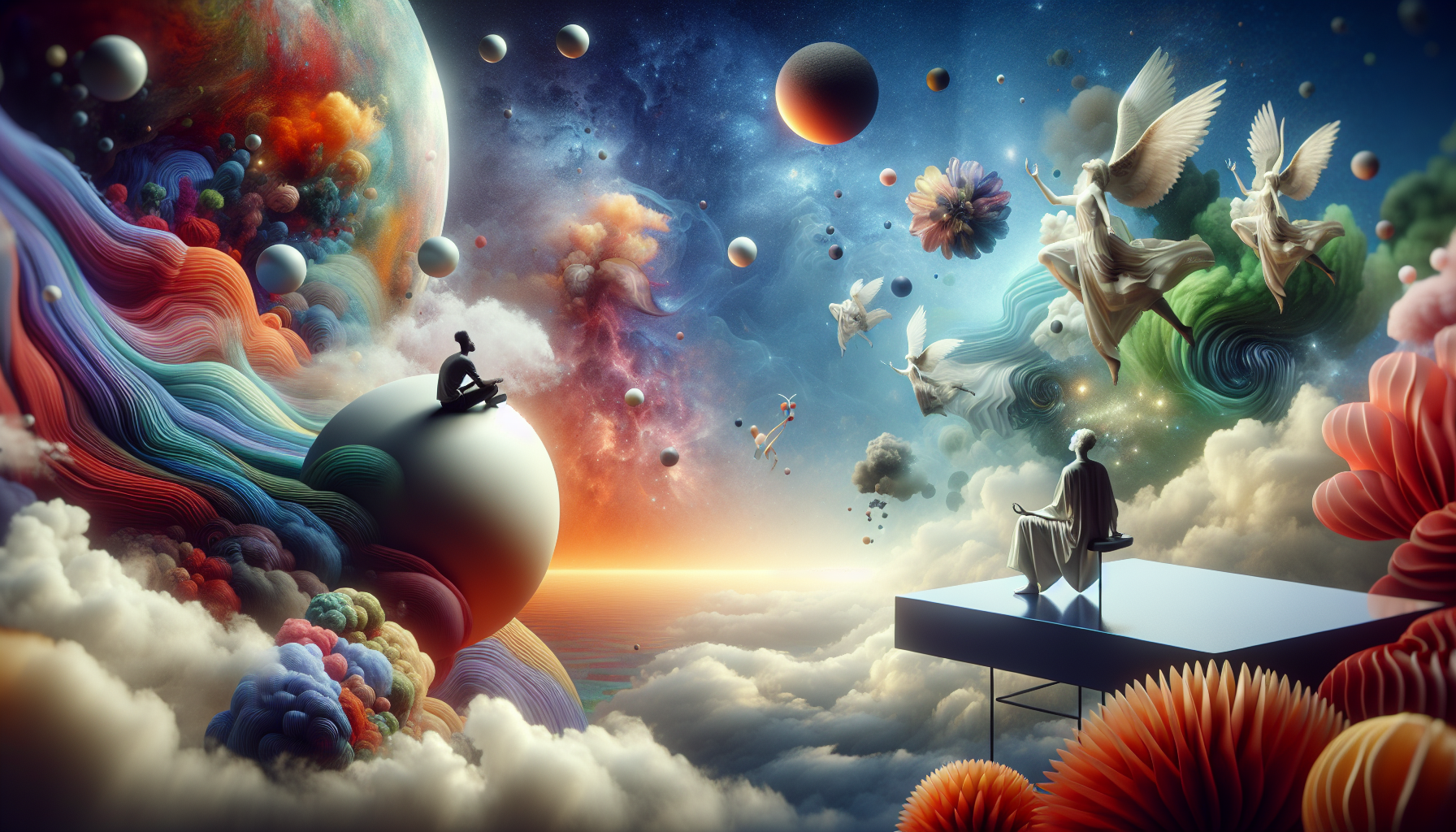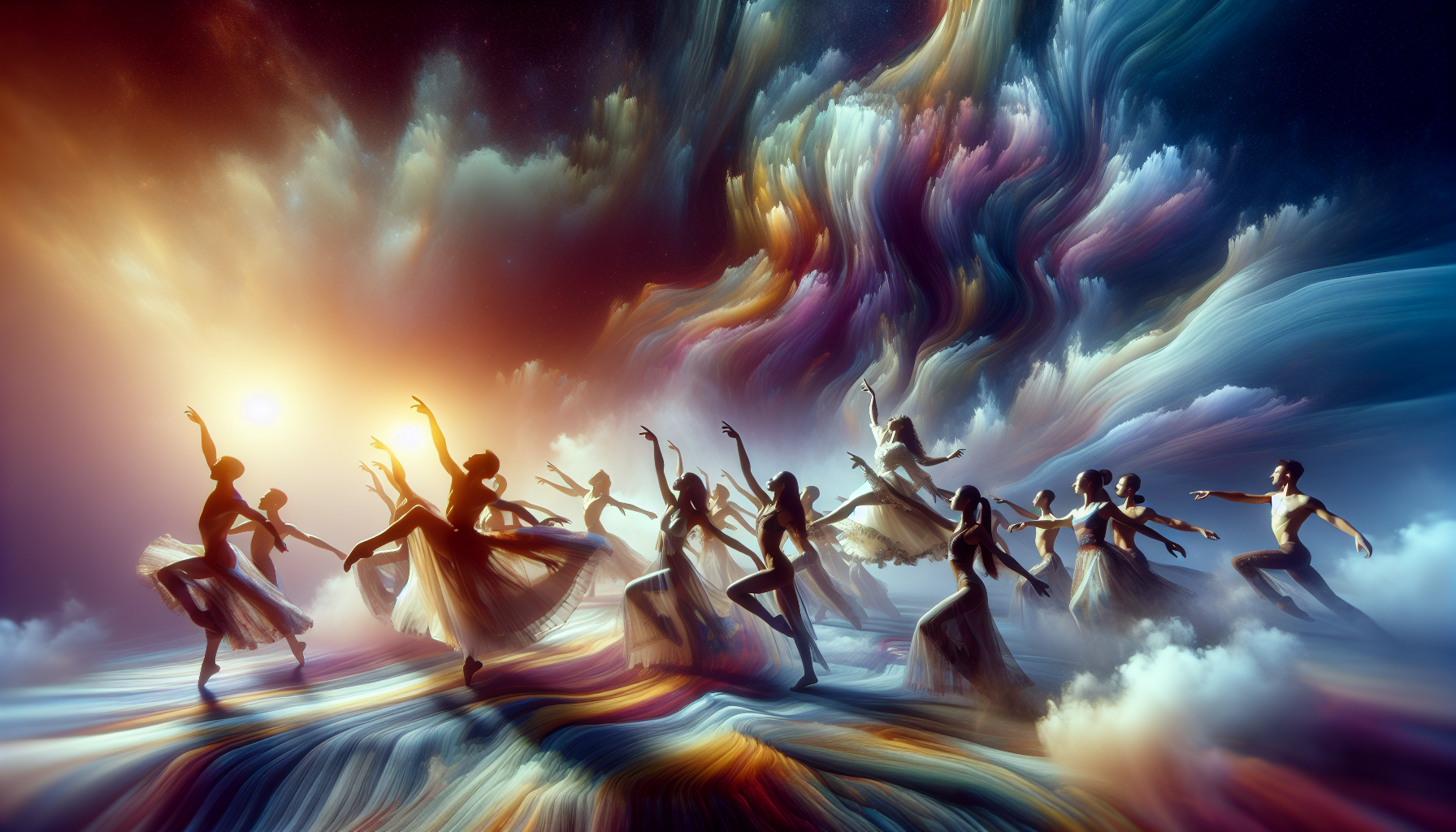In the vast and enigmatic landscape of dreams, few symbols captivate the human psyche as profoundly as the motif of death. This powerful symbol, shrouded in mystery and often misunderstood, evokes a spectrum of emotions from fear to intrigue. Yet, within the dream world, death rarely signifies an end. Instead, it serves as a gateway to transformation, a conduit through which the subconscious mind communicates profound insights about our lives, emotions, and the ever-evolving self. In this exploration of dreams and their symbolic language, we delve into the transformative essence of death, unraveling its hidden meanings and the wisdom it imparts to those willing to listen.
Dreams have fascinated humanity for centuries, providing a mirror to our innermost thoughts and desires. They are a realm where reality bends, time becomes fluid, and the impossible becomes tangible. Within this dreamscape, death emerges not as a harbinger of doom, but as a symbol rich with potential for rebirth and change. It challenges us to confront our fears, encouraging introspection and growth. By examining dreams through this lens, we gain insights into our subconscious mind’s yearning for renewal and its quest for personal evolution.
As we journey through this exploration, we will unravel the layers of symbolism associated with death in dreams. First, we’ll delve into the archetypal interpretations, where death represents transformation, shedding light on how such dreams often herald significant life changes or the release of outdated beliefs. Next, we will consider the cultural and historical contexts, exploring how different societies perceive death in dreams and what these perceptions reveal about our collective consciousness. From ancient myths to modern psychology, the theme of death as a transformative force pervades our understanding of the human experience.
Moreover, we will explore personal narratives and case studies, offering a glimpse into the diverse ways individuals experience and interpret dreams of death. Through these stories, we uncover the rich tapestry of human emotions and the unique pathways to transformation that dreams illuminate. These narratives serve as a testament to the universality of this symbol and its ability to transcend cultural and individual boundaries, touching upon the core of what it means to be human.
Finally, we will consider the practical applications of understanding death in dreams, offering strategies for dream interpretation and personal reflection. By embracing the symbolic nature of death, we empower ourselves to harness the transformative energy these dreams offer. Whether it’s the end of a relationship, a career transition, or a personal metamorphosis, dreams of death can guide us toward acceptance, healing, and ultimately, a brighter beginning. Together, let’s embark on this journey of discovery, unlocking the mysteries of the dream world and the profound symbolism of death as a beacon of transformation. 🌙
Introduction to the Dream World
Dreams have fascinated humanity for centuries, offering glimpses into the subconscious mind and holding significant symbolic meanings. Among the vast array of dream motifs, death is perhaps one of the most compelling and universally experienced symbols. Understanding the symbolism of death in dreams can provide profound insights into our inner worlds and personal transformations. This article delves into the intricacies of death symbolism within the dream world, exploring its various interpretations and implications.
Dreams of death often provoke strong emotional responses, whether fear, curiosity, or introspection. It is crucial to acknowledge that dreaming about death does not necessarily predict a literal death but is more about transformation, endings, and new beginnings. The subconscious mind uses the powerful imagery of death to communicate messages about personal growth, change, and the shedding of old ways. To understand these dreams, we must consider various contexts, cultural influences, and personal experiences that shape their interpretations.
In this exploration, we will look into different aspects of dreaming about death, including its psychological interpretations, cultural perspectives, and personal experiences. We will also examine how dream scenarios involving death can serve as catalysts for transformation and personal growth. By analyzing various dream symbols and scenarios, we can uncover the deeper meanings behind these dreams and their impact on our waking lives.
Psychological Interpretations of Death in Dreams
Dreaming about death is a powerful and often unsettling experience. From a psychological perspective, such dreams can signify the end of a particular phase in life, leading to new beginnings. The mind uses the imagery of death to symbolize the need to let go of old habits, beliefs, or relationships that no longer serve us. This process of letting go is essential for personal growth and transformation, allowing us to embrace new opportunities and experiences.
Psychologists often interpret dreams of death as expressions of anxiety, fear, or stress. These emotions may be related to changes in one’s life, such as a career shift, the end of a relationship, or a significant life transition. The symbolism of death in dreams can also reflect an individual’s struggle with their mortality or existential concerns. By addressing these fears and uncertainties, individuals can gain a deeper understanding of themselves and their life path.
In addition to these general interpretations, dreams of death can also be deeply personal, reflecting specific concerns or unresolved issues in the dreamer’s life. For instance, dreaming of a loved one’s death may indicate feelings of guilt, regret, or the need to reconcile past conflicts. Alternatively, dreaming of one’s own death can represent a desire for self-renewal or a fear of losing one’s identity. By exploring these personal connections, dreamers can gain valuable insights into their subconscious mind and emotional state.
Cultural Perspectives on Death in Dreams
Cultural beliefs and traditions play a significant role in shaping our interpretations of death in dreams. Different cultures have unique perspectives on death and the afterlife, which can influence how individuals perceive and interpret these dreams. Understanding these cultural nuances can provide a more comprehensive understanding of death symbolism in dreams.
In many Western cultures, death is often viewed as a negative or frightening experience. Dreams of death may be interpreted as omens or warnings of impending danger or misfortune. However, in other cultures, such as those with strong spiritual or religious beliefs, death is seen as a natural part of the life cycle and a transition to another realm. In these contexts, dreaming of death may be perceived as a positive or transformative experience, symbolizing spiritual growth or enlightenment.
In Eastern philosophies, such as Buddhism and Hinduism, death is often associated with rebirth and reincarnation. Dreams of death may be interpreted as a sign of spiritual progress or a reminder of the impermanence of life. These cultures often emphasize the cyclical nature of existence, encouraging individuals to embrace change and transformation as opportunities for growth and self-discovery.
Table: Cultural Interpretations of Death in Dreams
| Culture | Interpretation of Death in Dreams |
|---|---|
| Western | Often seen as negative, symbolizing fear, anxiety, or impending danger. |
| Eastern (Buddhism, Hinduism) | Viewed as a positive transformation, symbolizing rebirth and spiritual growth. |
| Indigenous | Seen as a natural part of life, often connected with ancestral wisdom and guidance. |
Understanding these cultural perspectives can enrich our interpretations of death in dreams, helping us appreciate the diverse meanings and significance attributed to this powerful symbol across different societies.
Dream Scenarios and Their Symbolic Meanings
Dreams involving death can take various forms, each with its unique symbolism and meaning. By examining specific dream scenarios, we can gain a deeper understanding of the messages conveyed by these dreams. Below, we explore some common dream scenarios involving death and their potential interpretations.
- Dreaming of a Loved One’s Death: This scenario may reflect feelings of loss, separation, or unresolved emotions related to the individual. It can also symbolize a fear of losing connection or an aspect of the relationship that needs attention.
- Dreaming of One’s Own Death: This dream may represent a desire for transformation, self-renewal, or a fear of losing one’s identity. It can also indicate a readiness to let go of old ways and embrace new beginnings.
- Witnessing a Stranger’s Death: This scenario can symbolize the end of an aspect of the dreamer’s personality or life that is no longer relevant. It may also reflect feelings of detachment or the need to explore unknown aspects of oneself.
Each dream scenario offers unique insights into the dreamer’s subconscious mind, revealing hidden fears, desires, or unresolved issues. By reflecting on these dreams and their symbolic meanings, individuals can gain valuable insights into their personal growth and transformation.
Video: Exploring the Symbolism of Death in Dreams
For a deeper understanding of the symbolism of death in dreams, watch the video below: Exploring Death Dreams – Dreams and Mysteries with John Paul Jackson
Assista ao vídeo para uma exploração detalhada dos temas discutidos, oferecendo insights adicionais sobre como interpretar sonhos de morte.
Transformational Power of Death in Dreams
Death in dreams often signifies transformation, marking the end of one phase and the beginning of another. This transformation can be both personal and spiritual, allowing individuals to shed old identities, beliefs, or habits that no longer serve them. By embracing these changes, individuals can experience profound personal growth and self-discovery.
In the context of personal transformation, dreams of death can act as catalysts for change, prompting individuals to reassess their lives and make necessary adjustments. These dreams often arise during times of significant life transitions, such as moving to a new city, changing careers, or ending a relationship. By acknowledging the need for change, individuals can navigate these transitions with greater ease and confidence.
On a spiritual level, dreams of death can symbolize a journey of self-discovery and enlightenment. By confronting fears of mortality and embracing the impermanence of life, individuals can gain a deeper understanding of their purpose and place in the world. This spiritual growth can lead to a greater sense of peace, fulfillment, and connection with the universe.
The transformational power of death in dreams lies in its ability to challenge individuals to confront their deepest fears and embrace change. By doing so, they can unlock new potentials and opportunities for growth, leading to a more authentic and fulfilling life.
Conclusion
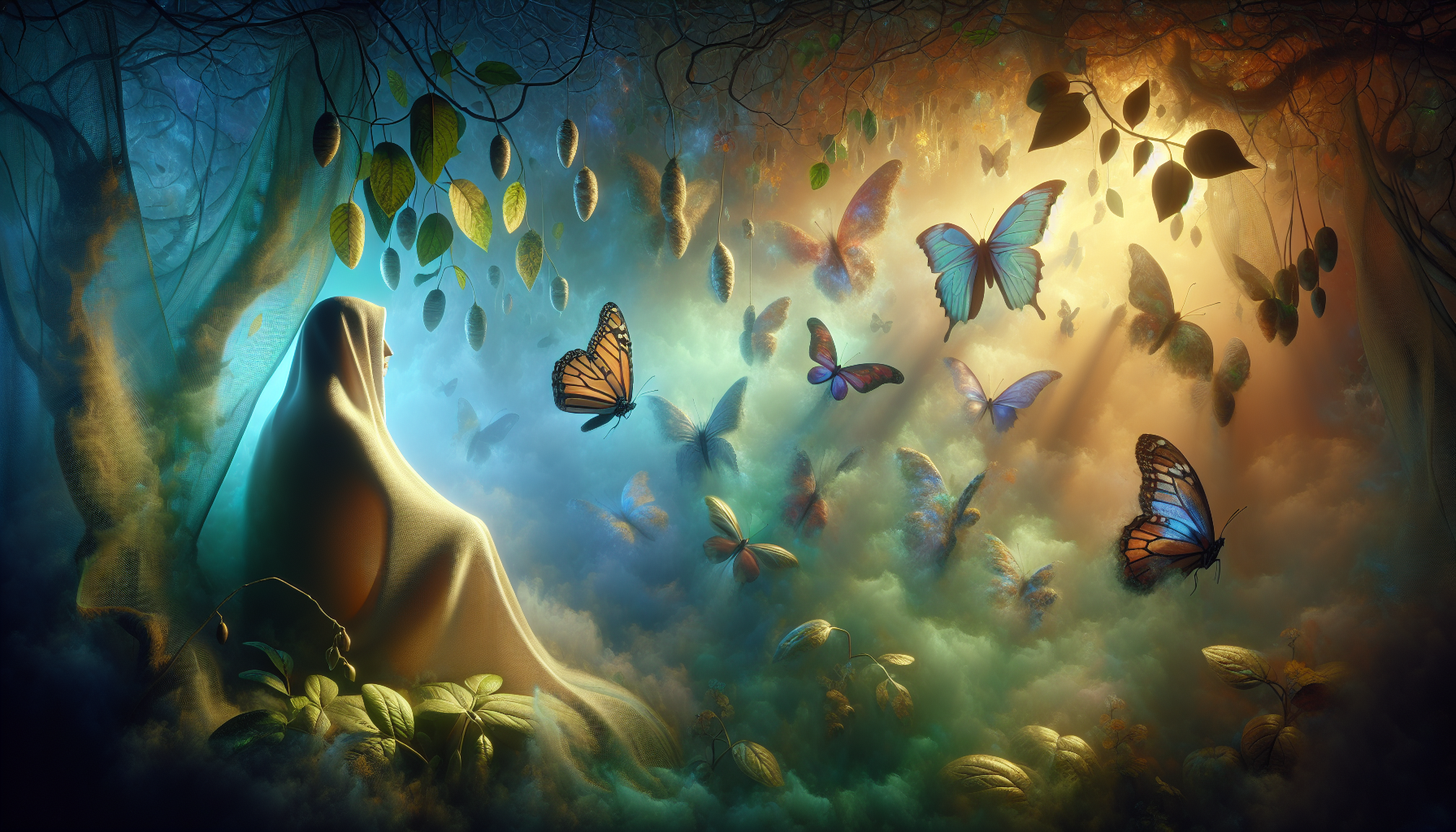
Conclusion: Embracing Transformation through the Dream Symbolism of Death
As we draw this exploration to a close, it is vital to synthesize the key insights that we have unearthed about the symbolism of death in dreams and its broader implications. Throughout the article, we embarked on a journey to understand how the representation of death in dreams serves as a profound metaphor for transformation and personal growth. We delved into various interpretations, encompassing psychological, cultural, and spiritual perspectives, each shedding light on how death in dreams transcends mere finality and speaks to the promise of renewal and change.
In the psychological realm, dreams of death often signal the end of a phase or the transition into a new stage of life. This understanding aligns with the theories proposed by Carl Jung, who suggested that dreams serve as a mirror to our subconscious, reflecting our innermost fears, desires, and potential for growth. The symbolism of death, therefore, is less about literal demise and more about the shedding of old habits, beliefs, and identities to make way for new beginnings. This interpretation invites us to view such dreams not with fear, but with a sense of curiosity and openness to the changes they herald.
Culturally, the symbolism of death in dreams varies widely, yet many traditions acknowledge its transformative power. In some Indigenous cultures, dreams of death are seen as messages from ancestors, offering guidance and wisdom for the dreamer’s journey. Similarly, in Eastern philosophies, death is often viewed as part of a cyclical process, where endings seamlessly lead to new beginnings. This cultural tapestry enriches our understanding, reminding us of the universality of death as a symbol and its capacity to connect us with deeper existential truths.
Spiritually, death in dreams can be seen as an invitation to transcend our current limitations and evolve into a more authentic version of ourselves. This perspective encourages us to embrace change as a natural and necessary part of our spiritual journey. By interpreting these dreams as spiritual wake-up calls, we are inspired to align our lives more closely with our true purpose and to live with greater intentionality and mindfulness.
The importance of understanding the symbolism of death in dreams cannot be overstated. In a world that often fears change and clings to the familiar, these dreams serve as powerful reminders of the inevitability of transformation. They challenge us to confront our fears and to embrace the unknown with courage and resilience. By reframing our perceptions of death in dreams, we open ourselves to a path of continuous growth and self-discovery.
As we conclude, let us take a moment to reflect on the transformative potential that lies within our dreams. Rather than viewing them as mere nocturnal wanderings, we can see them as valuable insights into our subconscious mind and our journey through life. By engaging with these symbols, we not only deepen our self-awareness but also cultivate a mindset that is receptive to change and growth.
We encourage you, dear reader, to explore your own dreams with an open mind and heart. Consider keeping a dream journal to track recurring themes and symbols, as this can provide a rich source of personal insight and guidance. Engage in discussions with others, sharing your experiences and interpretations, as this can lead to profound realizations and connections.
In the spirit of community and shared learning, we invite you to comment on this article, sharing your own experiences and insights regarding dreams and their symbolism. Your contributions can help create a dialogue that enriches our collective understanding and fosters a supportive environment for those navigating the complexities of dream interpretation.
Moreover, we urge you to share this article with others who may benefit from exploring the symbolism of death in dreams. Whether through social media, email, or personal conversation, spreading this knowledge can empower others to embrace transformation in their own lives. 🌟
In conclusion, dreams of death are not harbingers of doom but rather beacons of transformation. They call us to shed the old and welcome the new, guiding us on a path of continuous evolution. By embracing the symbolism of death in dreams, we open ourselves to a world of possibilities, where change is not feared but celebrated. Let us journey forward with courage and curiosity, ever ready to transform and transcend. 🌈
Thank you for joining us on this exploration of dreams and transformation. We hope it has inspired you to view your dreams with renewed wonder and to embrace the beautiful metamorphosis they can inspire in your life.
Gabriel is a visual storyteller and dream archivist whose work explores the fragile boundary between memory and imagination. Through layered visuals and symbolic design, Gabriel captures the fleeting essence of dreams — those strange, beautiful, and sometimes haunting fragments that drift through sleep and linger in waking thought.
His creative journey is rooted in a deep fascination with the subconscious and the imagery it conjures. From half-remembered landscapes to recurring symbols and surreal encounters, each piece Gabriel brings to life becomes a portal into the inner archive — where time distorts, meanings shift, and personal mythology takes form.
With a background in handcrafted artistry and visual composition, Gabriel merges intuition with intention. His work doesn’t merely depict dreams; it preserves them, translating ephemeral moments into tangible expressions that evoke emotion, curiosity, and quiet revelation. Each visual is both a record and an invitation to explore the rich terrain of inner life.
Through illustrated dream journals, symbolic studies, and visual essays, Gabriel invites others to connect with the poetic architecture of their subconscious landscapes. His art becomes a mirror — not only of what we see at night, but of what we carry deep within.
His work is a tribute to:
-
The fragile beauty of forgotten dreams
-
The language of symbols in the subconscious mind
-
The inner worlds we visit but rarely name
Whether you’re a lucid dreamer, a seeker of hidden meanings, or someone fascinated by the mystery of sleep-born stories, Gabriel welcomes you to step into a space where dreams are not lost — they are archived, one vision, one sketch, one silent narrative at a time.


